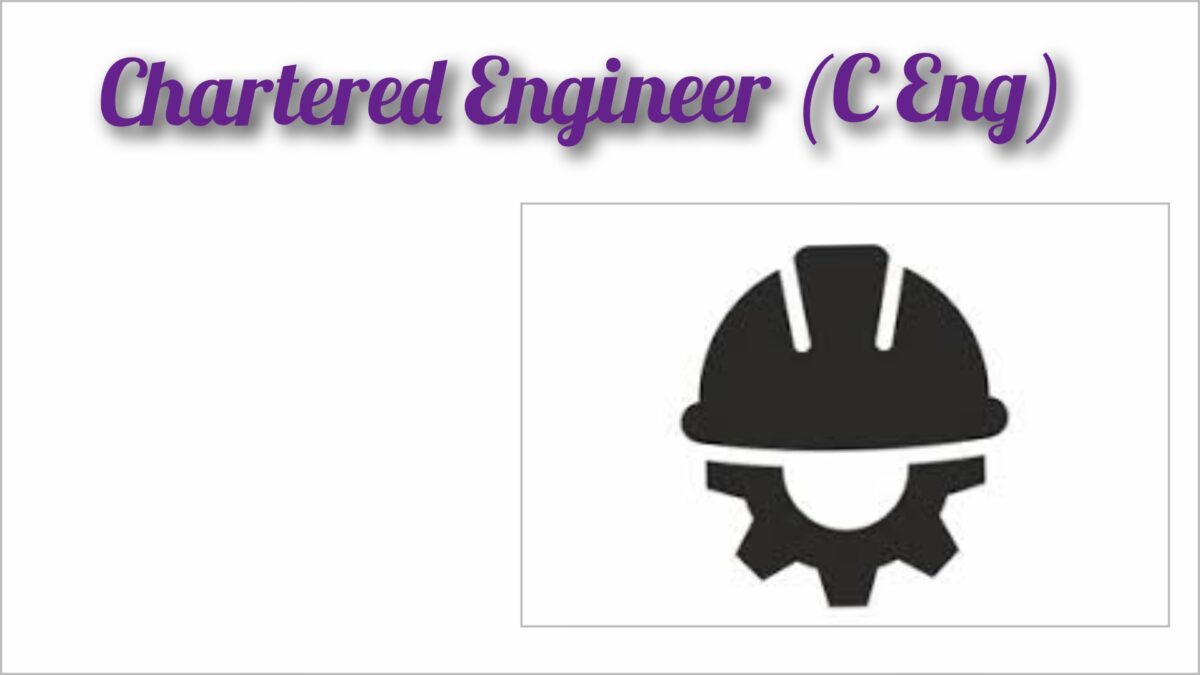Table of Contents
Who is a Chartered Engineer (CEng)?
Being a Chartered Engineer (CEng) means that you have achieved Chartered Engineer Status with The Engineering Council. This form of recognition shows your competence as an engineer.

As a Chartered engineer, you will undertake the role of developing solutions to engineering problems with new or existing technologies by using innovation and creativity. As a Chartered Engineer it is important that you take technical accountability for complex systems which involve varying levels of risk.
A Chartered Engineer is usually degree-qualified and has gained professional competencies through a minimum of four years’ experience through a peer reviewed process. To become a Chartered Engineer you must be registered with a Professional Engineering Institution recognized by The Engineering Council, such as The Welding Institute. As an Institute, we are equipped to support you through your engineering registration process, with a volunteer based group of mentors, all specializing in varying industry sectors.
What Does CEng Stand For?
CEng is an abbreviation of Chartered Engineer. The term ‘chartered engineer’ is abbreviated to CEng to enable engineers holding the title to use it as a post-nominal on their name. CEng registration means that you are a Chartered Engineer.
Why one should become a Chartered Engineer (CEng)?
Professional recognition: One of the main benefits of becoming a Chartered Engineer is the professional recognition that you can gain from using the title. It shows your competence as an engineer to employers, employees and clients. This, in turn, can increase their confidence in you and your capabilities as an engineer.
International recognition: Chartered Engineer status is internationally recognized and can therefore open up the opportunity for global networking and career opportunities.
Industry influence: Chartered Engineer status is a higher qualification than Incorporated Engineer (IEng) or Engineering Technician (EngTech) and therefore enables you to have more influence within the engineering industry.
How to Become a Chartered Engineer?
Chartered Engineer status is for anyone who is able to demonstrate the required professional competence, experience and skills laid out by a professional standard.
You must also meet one of the following requirements:
- A bachelor’s degree in a relevant engineering subject and a master’s qualification
- A four year degree accredited by a Professional body
- A bachelor’s degree and experience from learning on the job, including courses and private study
You can also find more information about your individual route into qualification if you do not have the academic or engineering qualifications that are required.
Way Forward
Becoming a Chartered Engineer is an important indicator of your professional development. It shows that you are competent, responsible and committed to your career as an engineer. A career in engineering is not only about the development of new/existing technology, but also about the impact that your work can have in real life. Being registered as a Chartered Engineer demonstrates this commitment and interest in your work, particularly due to you carrying out Continuous Professional Development and therefore evidencing and tracking your career and experience for others to see.
